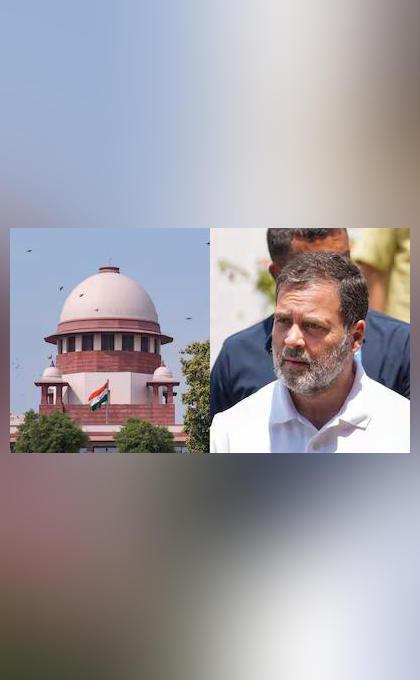
Why ask on social media & not in parliament: SC to Rahul on ‘land grab’ claim
The Supreme Court of India has recently rebuked Congress leader Rahul Gandhi over his ‘China grabbed 2,000 sq km of Indian land’ claim, saying that instead of making such statements on social media, he should have asked these questions in Parliament. This remark was made by the Supreme Court while staying a defamation case against Rahul for his remarks about the Indian Army.
Rahul Gandhi had made the claim in a tweet in 2020, stating that China had occupied 2,000 square kilometers of Indian land. However, the Chinese government had denied the claim, and the Indian government had also clarified that the situation at the Line of Actual Control (LAC) was sensitive and complex, but there was no evidence to support Rahul’s claim.
The Supreme Court’s remark has sparked a heated debate in the country, with many questioning why Rahul Gandhi chose to make such a sensitive and serious claim on social media instead of raising it in Parliament. The Court’s observation has also raised questions about the role of social media in politics and the accountability of public figures.
In the past, Rahul Gandhi has been known to use social media platforms to make provocative statements and raise controversial issues. While social media can be a powerful tool for raising awareness and mobilizing public opinion, it is also a platform that lacks the checks and balances of traditional institutions like Parliament.
Parliament is the highest legislative body in the country, and it is where lawmakers are accountable to the people. MPs have a responsibility to raise issues of public importance and to hold the government accountable for its actions. However, when Rahul Gandhi makes claims like ‘China grabbed 2,000 sq km of Indian land’ on social media, he is not subject to the same level of scrutiny and accountability as he would be if he had made the same claim in Parliament.
Moreover, social media platforms are often plagued by misinformation and disinformation, and it is difficult to verify the accuracy of claims made on these platforms. In contrast, Parliament is a more formal and structured institution where lawmakers are required to provide evidence and justify their claims.
The Supreme Court’s remark has also highlighted the need for public figures to be more responsible and accountable in their use of social media. Social media is a powerful tool that can be used to shape public opinion and influence political discourse, but it is also a platform that requires careful consideration and scrutiny.
In conclusion, the Supreme Court’s remark has raised important questions about the role of social media in politics and the accountability of public figures. While social media can be a powerful tool for raising awareness and mobilizing public opinion, it is also a platform that lacks the checks and balances of traditional institutions like Parliament. Public figures like Rahul Gandhi have a responsibility to use social media responsibly and to be accountable for their claims.






